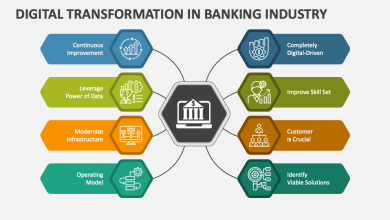
The financial system is the foundation of development and stability in every economy, no matter how developed it is. The efficient movement of capital and debt within a nation is made possible by a well organized system of markets, institutions, regulations and equipment. Governments, corporations and people will struggle to manage savings, generate money, or engage in development prospects in the absence of financial systems. Learn what a financial system is and identify your main functions to appreciate its importance.
What is a financial system?
Financial system is essentially a group of organizations, equipment and markets that bring borrowers and savings together. Banks, insurance providers, stock exchange, pension funds and even informal lenders fall under this category. As a tool for commerce and investment, the system also includes financial equipment such as stocks, bonds and currencies.
In short, the financial system acts as a middleman among those who require money and which have more. For example, the bank can lend money to companies when people deposit money there. The economy remains strong and dynamic due to this cycle.
Major function of a financial system
The financial system performs several important functions that promote both financial stability and economic progress.
1. Increase your savings
Gathering domestic funds and keeping them in profitable investment is one of the most important responsibilities. Instead of depositing money, servants placed it in mutual funds, bonds or bank deposits. These monies are later used to support government initiatives, enterprises and infrastructure projects.

2. Facility for investment
The financial system guarantees that the money flows towards meaningful efforts by the facility of exchange of information between saver and borrowers. You can raise funds to employ loans for issuing or growing business. Apart from helping businesses, it also increases economic growth and generates job prospects.
3. Discount
Which property can be converted into cash due to property damage, it is known as liquidity. Stock exchanges and other financial market investors provide a place to buy or sell faster assets. Because investors know that they can withdraw from the financial system at any time, it promotes an increase in liquidity participation.
4. Risk control
The financial system provides equipment for risk management and mitigation. While insurance companies protect people and businesses from unexpected losses, investors can mold themselves against careless decisions using hedging tools and derivatives. This promotes investment and reduces uncertainty.
5. Price search
Uses supply and demand in financial markets to determine the fair price of financial assets such as AIDS, stock, bonds and products. Transparency and effectiveness are guaranteed by this pricing search technique by benefiting both investors and businesses.
6. Stabilize
Additionally, the financial system is important to preserve economic stability. Regulatory agencies like central banks monitor the system, apply rules and stages if necessary. The strategy to stabilize the central bank economy is to manage inflation or change interest rates.
Why it is important
The economy will be disorganized and disabled in the absence of the financial system. Businesses will be difficult to spend money, there will be some safe ways to save people, and governments will find it challenging to take care of the initiative on a large scale. The financial system guarantees flexibility, growth and balance by integrating all sectors of the economy.
final thoughts
The financial system is the backbone of every economy and has only more than banks and stock exchanges. All resulted in savings, investment opportunities, risk management, price search and stability increased.

Knowing its function enables us to see ways in which our daily financial options support overall economic welfare.




